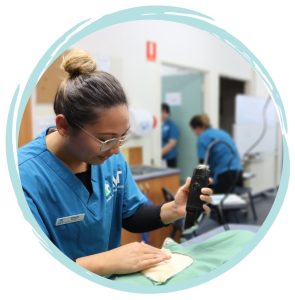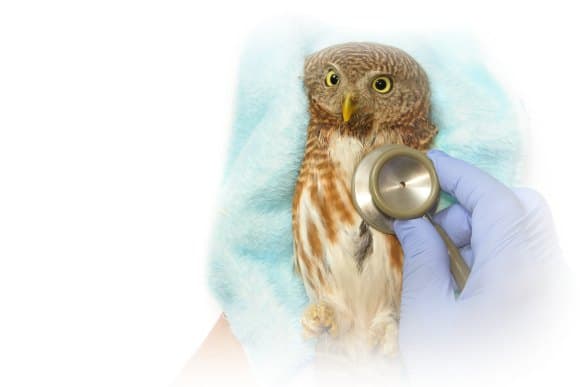
Many high school students and graduates aspire to work with animals and the Certificate II and III qualifications we offer are excellent pre-vocational courses that can lead to a wide variety of career pathways in the animal care industry.
Combining online learning with practical training, our animal care courses will provide you with both the underpinning knowledge and practical skills needed to enter the workplace or move on to higher qualifications.
This depends on your individual experience and academic ability.
If you are at high school or a high school-aged student, we recommend commencing your animal care career with our on-campus course, ACM20121 Certificate II in Animal Care (VETDSS High School) or our online version, ACM20121 Certificate II in Animal Care (Online). You can find out more detailed information on what age you need to be to commence our Animal Care certificates here.
Depending on a student’s individual interests, we recommend all high school-leavers commence with ACM20121 Certificate II in Animal Care. The only time we recommend direct entry into ACM30122 Certificate III in Animal Care Services is when a student has already completed a Certificate II in either Animal Studies or Care or an alternative course or has considerable work experience in the animal care industry.

If you’re new to the animal care industry and want to learn more about animals, we would suggest you start with ACM20121 Certificate II in Animal Care. This is an excellent entry-level course to introduce you to the world of animal care. If you have not studied for some time and/or have only previously completed studies up to year 10 in high school, the Certificate II courses are also an ideal starting point to give you the foundations for further study in this area.
If you are a mature-aged student who has considerable experience working with animals, has completed year 11 studies or higher at high school, and are seeking a general animal care qualification, we would suggest that you begin your studies with ACM30122 Certificate III in Animal Care Services (RSPCA) or ACM30122 Certificate III in Animal Care Services (Online)
The Certificate II and III in Animal Care (Animal Studies) courses are both offered as flexible online learning courses and on-campus/on-site study modes.
Deciding which course is for you depends on your experience and skills. If you already have recent significant experience working or volunteering with animals including animal handling, and have good academic ability we would suggest starting at a Certificate III level. On the other hand, if working with animals and handling animals is completely new to you, we recommend starting at a Certificate II level.
When it comes to deciding which study mode is for you, this again depends on your location and personal situation.
For anyone interested in pursuing a career in veterinary nursing, our animal care (animal studies) qualifications meet the prerequisite for ACM40418 Certificate IV in Veterinary Nursing. All applicants are subject to the AVT selection process once the prerequisite is met.
*Funded places are subject to eligibility and availability.
The Student tuition fees are indicative only and are subject to change given individual circumstances at enrolment.
Additional fees may apply such as resource fees and other fees.

Want to find out more about starting out, career opportunities working with animals, subjects to choose to go on to a career in veterinary nursing? Follow these links:
Studying Online
About Our Schools Program
About Animal Health & Welfare
About Our Courses
This site is protected by reCAPTCHA and the Google Privacy Policy and Terms of Service apply.
The leader in delivery of Australian Nationally Recognised Qualifications including ACM20121 Certificate II in Animal Care (formerly Animal Studies), ACM30122 Certificate III in Animal Care Services, ACM40818 Certificate IV in Veterinary Nursing and ACM40322 Certificate IV in Animal Behaviour and Training.
Applied Vocational Training (AVT) delivers a range of qualifications and short courses for students wishing to pursue a career working with animals.
AVT is a Registered Training Organisation based in Perth, Western Australia, providing on-campus and online courses to students studying throughout Australia. More about us →
We acknowledge the traditional owners of the land where our campus is based, the Whadjuk people of the Noongar Nation. We pay our respects to Elders past, present and emerging and we commit to walking alongside our indigenous brothers and sisters. We extend that respect to the Aboriginal and Torres Strait Islanders in our community.
Applied Vocational Training (AVT) is proudly a Registered Training Organisation (RTO 5273).